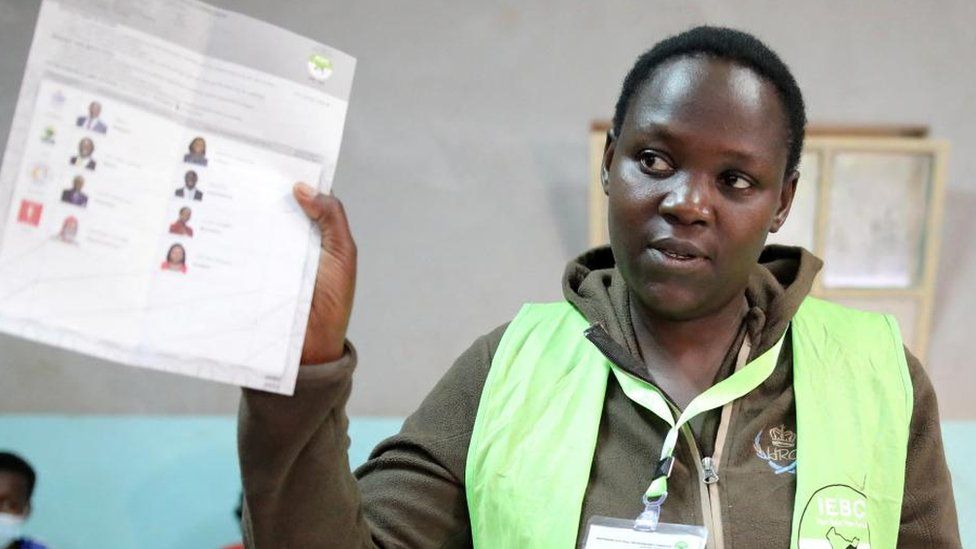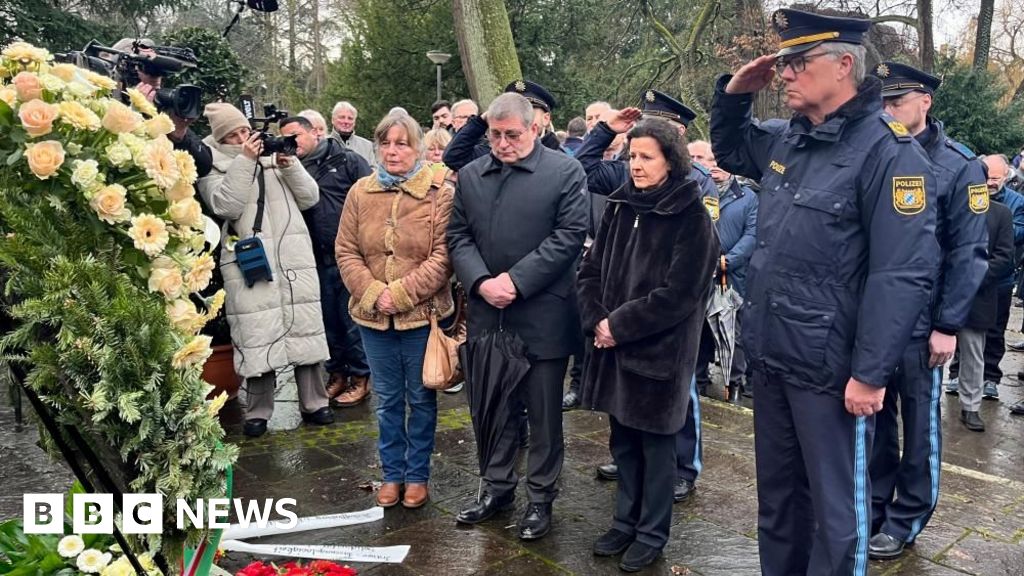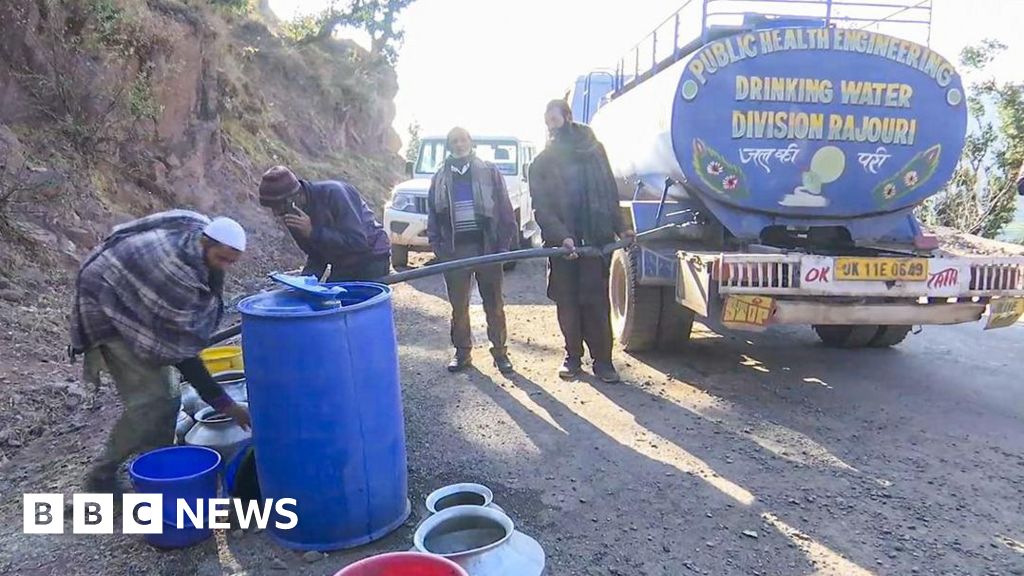ARTICLE AD BOX
By Dickens Olewe
BBC News, Nairobi
 Image source, Reuters
Image source, Reuters
Votes were counted at each of the more than 46,000 polling stations and the results were then sent to the national tallying centre
Kenyans still do not know who their next president will be more than 45 hours after polls closed.
Election head Wafula Chebukati has urged people to be patient and not to panic that media houses are releasing differing tallies.
Each organisation is making its own calculations based on the manual entry of data from more than 46,000 polling stations.
But it is only the electoral commission that can declare the winner.
The media's tallies show that the two leading candidates - Raila Odinga and William Ruto - are neck and neck.
"There should be no panic about the differences we are seeing on the media screens. The results are from the same public portal; the approach [of each broadcaster] is different," Mr Chebukati said.
He said at the end of the tallying the results should look "similar".
Why is it taking so long?
Teams of journalists working for various outlets are engaged in the laborious task of uploading the figures received from each of the polling stations one-by-one. Each media house is doing it a different speed and choosing the polling stations in a different order.
When it comes to the electoral commission, on top of compiling the results, officials need to verify each one - another time consuming task.
Image source, EPA
Image caption,The head of the electoral commission, Wafula Chebukati, has urged people to be patient
Officials are currently comparing the results the commission received in the form of a photograph from the polling stations with the actual results sheet, which is being hand delivered to the tallying centre in the capital, Nairobi.
This is to ensure that both results match and a key reason why things are taking so long.
Counting in some polling stations was also delayed and travel to Nairobi, especially by agents from far-flung areas, could be further factors in slowing things down.
How are Kenyans feeling?
There is a sense of anxiety in the country as disputed elections in the past have led to violence or the whole process being cancelled.
Following the 2007 vote, at least 1,200 people were killed and 600,000 fled their homes following claims of a stolen election.
In 2017, huge logistical errors led the Supreme Court to annul the result and order the presidential poll to be re-run. Officials are under pressure to get things right this time.
The country often grinds to a halt during elections, activities across the country have slowed and schools remain closed at least until next week on Monday. In Nairobi's central business district, the usually busy streets are mostly deserted.
Allegations of election rigging are as old as the country. It was part of politics even before multiparty elections were re-introduced in the 1990s, but the push for free and fair elections has never faltered.
After the violence that followed the 2007 election, political parties and activists argued for the use of technology instead of physical registers, which could be easily manipulated, to verify voters.
This year's election is the third time technology has been used but it has yet to deliver an election that has not been challenged in the courts.
Early reports, however, suggest that the electoral commission may have finally achieve this elusive goal with this election.
When will we know the result?
At the pace of the counting is ongoing, the local media is likely to finish tallying provisional results before the end of day on Thursday.
If there is a clear leader of the race, celebrations are likely to break out.
However, only the electoral commission can declare a winner after comparing and verifying the results.
The electoral commission has seven days after the election day to declare the result.
To win the presidential race in the first round, a candidate needs:
- more than half of all the votes cast across the country
- at least 25% of the votes cast in a minimum of 24 counties.
Otherwise voting goes to a second round which by law has to happen by 8 September.
Who is in the race to run Kenya?
Learn more about Kenya’s presidential candidates
Choose a candidate to view their bio
Raila Odinga
William Ruto
George Wajackoyah
David Mwaure
Raila Amollo Odinga
Azimio la Umoja Coalition
The basics
- Age: 77
- Nicknamed “Baba”
- Son of former vice-president
- Trained as an engineer in what was then East Germany
- Prime minister from 2008 to 2013 in the unity government created after post-election violence
- Formed alliance with ex-political enemy President Uhuru Kenyatta
- Four-time unsuccessful presidential candidate
Known for
- Championed multiparty democracy in the one-party era.
- Detained twice (1982-88 and 1989-91) as a political prisoner.
- Seen as a formidable campaigner able to draw large crowds.
Key policies
- Achieve double-digit economic growth through investment in small business and manufacturing sector.
- Provide affordable quality healthcare for all.
- Disburse $50 (£42) a month to two million needy households.
William Samoei Ruto
Kenya Kwanza Alliance
The basics
- Age: 55
- Worked as a street trader as a teenager.
- Has a PhD in plant ecology from the University of Nairobi.
- Served as deputy president since 2013 but fell out with boss President Uhuru Kenyatta.
- One of Kenya’s biggest maize farmers.
- Charged by the International Criminal Court over post-election violence – charges later dropped.
Known for
- Portrays himself as champion of the downtrodden.
- Coined phrase “hustler nation”
- Owns huge parcels of land but the source of his wealth is a subject of speculation.
- Praised as an effective agriculture minister from 2008-2010.
- Seen as a powerful orator and robust media interviewee
Key policies
- Give all Kenyans subsidised health insurance cover and a fee waiver for poor households.
- Allocate $420m annually to support small and medium-sized enterprises.
- Appoint a gender-balanced cabinet.
George Wajackoyah
Roots Party
The basics
- Age: 63
- Holds a masters in international development law from the UK’s University of Warwick.
- Says he has 17 university degrees
- Worked in police intelligence before he fled the country in 1990 to escape from torture
- Gained notoriety with eye-catching policies
Known for
- Lived on the streets of the capital as a child and was rescued by Hare Krishna worshippers
- Partner in a law firm he established in 2018
- Campaigns wearing a tracksuit, T-shirt and headscarf rather than a smart suit
Key policies
- Legalise the farming and production of marijuana for industrial and medical use
- Switch to a four-day working week from Monday to Thursday
- Invest in snake farming to extract the venom which can be exported
David Mwaure Waihiga
Agano Party
The basics
- Age: 65
- Practised law for more than three decades
- Also an ordained reverend
- Previously ran for MP, senator and county governor – losing each time
Known for
- Founded Agano Party in 2006
- Says he brings a “breath of fresh air” to the top of politics
- First expressed an interest in running for president in 2013
Key policies
- Set up an asset recovery agency under the presidency to recover stolen funds
- Slash income tax by half and get rid of it altogether for medics and police
- Give incentives to manufacturers and entrepreneurs to create jobs

 2 years ago
32
2 years ago
32








 English (US) ·
English (US) ·